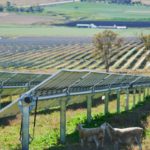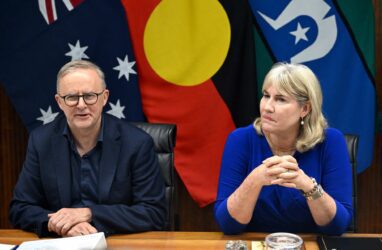Feed aggregator
This is the future: How my EV earned $100 in two hours supporting the grid in heatwave
The post This is the future: How my EV earned $100 in two hours supporting the grid in heatwave appeared first on RenewEconomy.
“It takes too long:” Solar and wind farm blockers to be weeded out to fast-track renewable projects
The post “It takes too long:” Solar and wind farm blockers to be weeded out to fast-track renewable projects appeared first on RenewEconomy.
Nextracker in landmark deal with Bluescope for Australian made solar trackers
The post Nextracker in landmark deal with Bluescope for Australian made solar trackers appeared first on RenewEconomy.
Rinehart-backed lithium and rare earths projects rake in more than $1 billion in federal funding
The post Rinehart-backed lithium and rare earths projects rake in more than $1 billion in federal funding appeared first on RenewEconomy.
Slugs and snails to get 'image makeover'
Climate framework laws having positive impact on policy focus, say researchers
California ARB offset issuance picks up in March, hovers below 2023 levels
Australia’s biggest solar farm inks “significant” power purchase deal
The post Australia’s biggest solar farm inks “significant” power purchase deal appeared first on RenewEconomy.
New Zealand suspends requirements for councils to consider Significant Natural Areas in planning
PVH sets sights on record year as it opens Australian facility and announces another project win in QLD region
The post PVH sets sights on record year as it opens Australian facility and announces another project win in QLD region appeared first on RenewEconomy.
Banks to deepen climate commitments, extending efforts to capital markets activities
Washington state’s first carbon permit auction of 2024 settles close to floor price
Verra revises improved forest management protocol to include carbon credit label
Switzerland-based direct air capture firm opens US headquarters
Pennsylvania Governor Josh Shapiro proposes state cap-and-trade programme, RGGI exit
FEATURE: Next wave of orphaned oil and gas wells in the US offers vast methane abatement potential
Tennis anyone? Bad news for skiers as snow season could shrink by 78% this century
UK government accused of trying to ‘stoke culture war on climate issues’
Green MP Caroline Lucas says call for investment in gas-fired power plants is election ploy that will jeopardise UK’s net zero target
Green MP Caroline Lucas has accused the government of stoking a culture war on climate issues by calling for more investment in new gas-fired power plants before a general election.
Lucas used an urgent question in the House of Commons to challenge the energy minister, Graham Stuart, on the plans set out on Wednesday, which could see a string of new plants built in the coming years despite the government’s commitment to phase out fossil fuels.
Continue reading...








